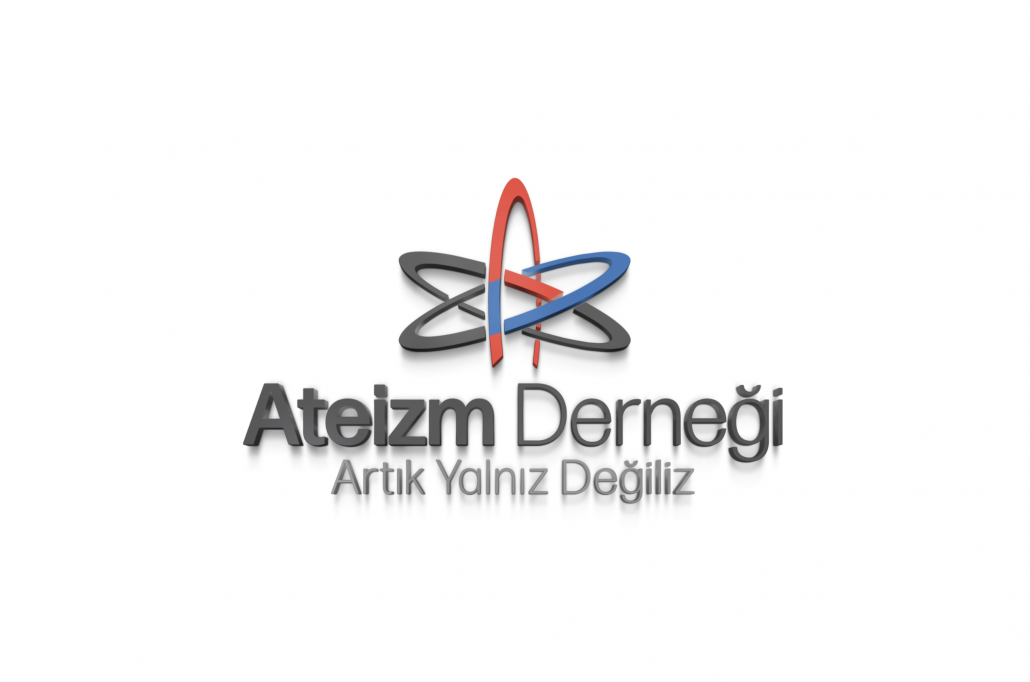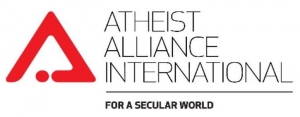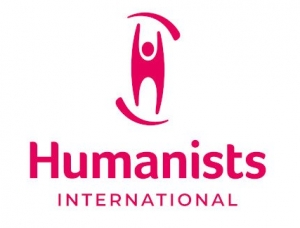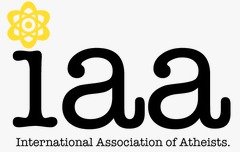
Ateizm Derneği (AD) (Association of Atheism, Turkey) is a nonprofit NGO, that preserves the social and legal rights of the nonbelievers in Turkey. AD is the first and only officially recognized atheist NGO among the Muslim populated countries, established in 2014. Because of the pro Islamic, conservative and repressive state structure, the non-theist minority in Turkey is exposed to increasingly serious oppression. President Recep Tayyip Erdoğan, in his speech at the Provincial Youth Committee meeting of his party in 2012, stated that he wants a “religious generation” and repeated this discourse on other media outlets. Erdogan’s “religious generation project” is still being maintained and now has become a red-line of the Turkish state policy. Islam is the dominant religion in Turkey and Sunni Hanafi sect constitutes the majority with approximately 77.5%. According to a poll taken in 2012, atheists build 2% of the country’s population. In the polls taken in 2013, approximately 4.5 million people were found to be irreligious. In the polls taken in 2015, it was shared that this number reached 5.5 million people and that approximately 9.4% of the population was irreligious. However, the citizens having to hesitate from their professional or social environments to hide their religious beliefs indicates that this number is much higher. In addition, as a result of the government suppressing the freedom of religion and conscience, and increasing the imposition of religion, it has been dertermined that there has been an increase in the atheist and deist population of the country. According to a KONDA (a poll company) research, young people under the age of 30 constitute the majority of the irreligious population in Turkey (85%) and this population is concentrated in the western part of the country.
• FREEDOM OF RELIGION AND THOUGHT/SECULARISM: Constitution of Turkey defines the country as a secular state; it envisages the freedom of conscience, religious belief, freedom of thought, expression and worship and prohibits discrimination on religious grounds. However, Article 216 of the Turkish Penal Code is “provoking the public to hatred, hostility or degrading”. The person who publicly humiliates the religious values adopted by a part of the public is sentenced to 6 months to 1 year in prison. There are legal restrictions on insulting a recognized religion, interfering with the ceremonies of a religious group, or damaging it’s property. In the criminal law, blasphemy is evaluated within the “provoking the public to hatred, hostility or degrading” article and counts in relevant crimes.
Turkey defines herself as a secular state in the constitution, however freedom of thought and conscience is mostly applied to protect only the rights of the Muslim majority. Atheist or deist individuals often have to hide their religious identity both in their professional life and in their social environment, and therefore tend to share their ideas on social media. To criticize Islam, its holy book Qur’an, and the prophet Muhammed, is considered as “insulting religious values” and is brought to the judiciary in accordance with Article 216 of the Turkish Criminal Code, which results in a fine or prison sentence if the criticism becomes heavy. Many people have been on trial for insulting religious values because of their posts on social media. The nonbelievers, who have been turned into a subject of hate speech, just for expressing secular thoughts, are firstly targeted for religious reasons on the social media by the party state, which has become a religious de facto regime; then discredited by the state officials who use religion as politics and as an “objection-proof armor”; lastly getting blamed because of expressing their thoughts regardless of their “presumption of innocence”. Because of the justification with religion, the human rights violations are this way made “unobjectionable”, which makes it impossible for the individuals who are isolated from the society by the state to seek rights. Individuals who declare that they are not Muslims are also targeted, by sometimes being stamped as “immoral, terrorist, marauder” and accused of “not being patriotic” by government officials including the President, and sometimes by their social environment. The religious identity is written as “Islam” on the family identity log of each individual born as a citizen of the Republic of Turkey, without being asked to their family or themselves. The individuals are given the right to change this information only after they turn 18. Therefore, people have to change the religion sections on their identity logs, and take the risk of being officially stamped for doing this. As a result of the same pressures, individuals are even afraid to become members of the Association of Atheism (Turkey) and tend to support our association through volunteering and donation, concluding from the fear of getting fired from their jobs or being devoid of their liberty. In Ramadan, when Muslims fulfill the worship of fasting, psychological and physical violence is implemented against individuals who do not fast in the public sphere, and these crimes remain unpunished. Many intellectuals and academics have been forced to leave the country or have been subjected to legal processes within the scope of related (or other related) crimes, within this “so-called” secular system.
• EDUCATION: According to Article 24 of the Constitution of the Republic of Turkey, “religious and moral education and teaching is done under the supervision of the state. Religion and moral education is among the obligatory courses taught in primary and secondary education institutions. Other religious education and teachings depend only on the individual’s own desire and the request of the legal representative of the minors. No one can exploit and abuse under no circumstances religion or religious feelings or religiously sacred things in order to gain influence or self-interests, even partially to base the political or judicial basic order of the state on the religious rules.” However, especially in the last 15 years, with the increasing non-secular Islamization process, significant changes have taken place in the field of education. The number of Imam Hatip High Schools, which are religious educational institutions, has been increased and parents have had to send their children to these schools in order to take advantage of some “benefits” brought by the government. Basic science and philosophy lesson hours have been reduced, it has been forbidden to teach evolution in biology, and scoring advantages for Imam Hatip high schools have been provided in university acceptance exams. After the July 2016 coup attempt, the Ministry of National Education made a more comprehensive change in the school curriculum, intensifying Sunni Muslim content in the textbooks, increasing the number of obligatory and elective religion courses, thereby damaging the country’s secular education system far more. Although parents have the right to exempt their children from obligatory religioun classes, they have been encountering various difficulties in this regard, both in practice and psychological context. No pedagogical measures have been taken against the mobbing of children who are exempted from the religion lessons. In this process, the Ministry of National Education signed protocols with various religious communities and tried to impose the Sunni Muslim content from other channels during the course hours. In 2020, the Ministry of National Education made some booklets printed for school counselors, in which women with headscarves were depicted as “good” and women with open head as “bad”. For example, the mother who beats her child in the pictures is not covered, but the mother who loves her child is head-scarfed. The Ministry of National Education cooperates with religious foundations and associations, which sets up a jihadist generation in private and public educational institutions. The lodges, zawiyahs and shrines which were closed with the law numbered 677 in 1925, carry out student dormitory activities under the name of “association and foundation”, where young people are given trainings based on religious intolerance. Moreover, for students under the age of 18, only the state has the right to open a dormitory, while the religious associations and foundations continue these activities under the same mask. Within the scope of distanced education regarding the coronavirus epidemic process, it was documented that derogatory terms were used for atheism and other non-theist thought systems, incorrect information was given, students were subjected to Islamic propaganda between classes; for example in a video animation where Selahattin Eyyubi is told, images of beheading and poniarding was shown and various hymns were played to children.
• DEPARTMENT OF RELIGIOUS AFFAIRS: According to the Article 136 of the Turkish Constitution, “The Department of Religious Affairs, which is included in the general administration, fulfills the duties shown in its private law, in line with the principle of secularism, with the aim of national solidarity and integration.” The Department of Religious Affairs, which has a much larger share from the state budget than it requires and continues its services with the taxes of all Muslim / non-Muslim citizens, has centralized the call prayer for Muslims which is 5 times a day, increased the number of mosques per street, converted the places of worship into propaganda tools of political Islam through religious officials calling out to the people in mosques, increased the frequency of the call to prayer made by sound systems, especially in the coronavirus epidemic period, added religious hymns called “sela” to call prayers, and brought the calls made from the mosques to a harassment level and with all these practices, it violated the “exclusion of all political views and thoughts in line with the principle of secularism” rule.
• MEDIA: Sunni Islamic propaganda is carried out in TRT, the official media channel of the state, and neutrality is not taken in the selection of programs and guests. The same is also valid for pro-government channels that constitute the majority of the media. Intense pressure and censorship is imposed on the few media channels that do not support the government.
• WOMEN RIGHTS: Violations of rights against women and girls are legitimized for religious reasons, childhood (12-16) marriage and childbirth are particularly promoted by pro-government media, lists which “include rape threats” for secular women are published on social media by personal accounts (2020), but the legal processes regarding these crimes are being shelved, and they not being reflected in the discourses of politicians and the official media.
• POLITICAL RENT AND GAIN: By the means of making religious beliefs an unquestionable and incontestable taboo, political gains and rents are being legitimized in the politic and commercial relationships.
Republic of Turkey, which wandered away from being a secular law state as a result of all these pressures and applications, has become a kind of theocracy that restricts individuals’ freedom of thought and belief, making it a legal crime to criticize not only the practices of the state on religion but also the practice of every subject. It has pushed irreligious citizens and citizens who belong to different religions/sects, to live in fear and anxiety. Within this report, we would like to indicate that the religious pressure level is not so innocent as it might seem from the outside; the non-theist population is under the clamp of a dark mentality, and silenced by fear of being clearly targeted. As the Association of Atheism,Turkey, we declare that we are doing our best against the pressure in question and we support all kinds of contributions towards minority rights.
May 29, 2020






